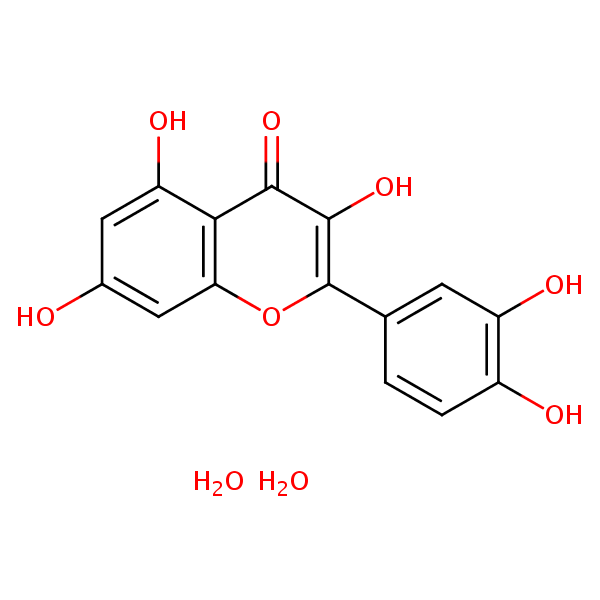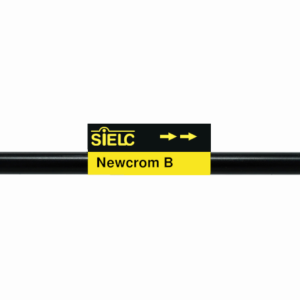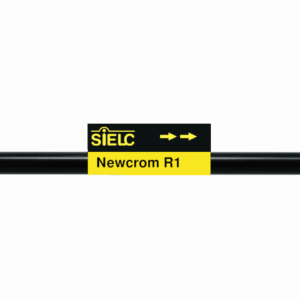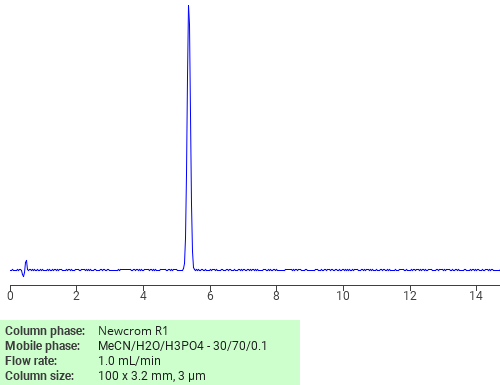| CAS Number | 6151-25-3 |
|---|---|
| Molecular Formula | C15H14O9 |
| Molecular Weight | 338.269 |
| InChI Key | GMGIWEZSKCNYSW-UHFFFAOYSA-N |
| LogP | 1.57 |
| Synonyms |
|
Applications:
HPLC Separation of Cinnamic Acid, Salicylic Acid and Quercetin on Newcrom B Column
March 12, 2021
Separation type: Liquid Chromatography Mixed-mode
![]()
View on hplc.cloud
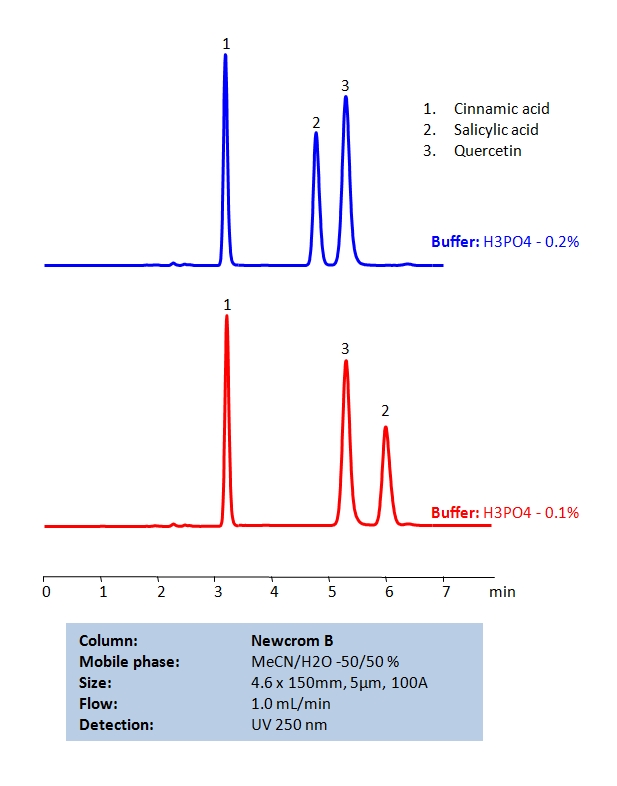
High Performance Liquid Chromatography (HPLC) Method of Cinnamic Acid, Salicylic Acid and Quercetin.
Cinnamic acid and benzoic acid are two of the major phenolic acids and autotoxins. Cinnamic acid occurs naturally in all green plants, showing significant antimicrobial activity against both bacteria and fungi as well as antioxidant activity. Salicylic acid (SA) is an o-hydroxybenzoic acid, synthesized by both plants and microorganisms. SA acts as a critical plant hormone regulating various processes, including growth and development, flowering, thermogenesis, ion uptake, stomatal movement, photosynthesis, and plant immunity. Quercetin is a naturally occurring flavonol, or flavonoid, the yellowish antioxidant pigment found in skins of red grapes, berries, apples, onions, tomatoes, and buckwheat tea. In addition to functioning as a flavonoid, quercetin is also a phytoestrogen. All three compounds can be retained and separated by using a mixed-mode Newcrom B column using an isocratic analytical method with a simple mobile phase of water, acetonitrile (MeCN, ACN), and phosphoric acid (H3PO4) buffer. UV detection at 250 nm.
| Column | Newcrom B, 4.6×150 mm, 5 µm, 100A |
| Mobile Phase | MeCN -50% |
| Buffer | H3PO4 |
| Flow Rate | 1.0 ml/min |
| Detection | 250 nm |
| Class of Compounds | Acid |
| Analyzing Compounds | Cinnamic acid, Quercetin, Salicylic acid |
Application Column
Newcrom B
The Newcrom columns are a family of reverse-phase-based columns. Newcrom A, AH, B, and BH are all mixed-mode columns with either positive or negative ion-pairing groups attached to either short (25 Å) or long (100 Å) ligand chains. Newcrom R1 is a special reverse-phase column with low silanol activity.
Select optionsQuercetin
Quercetin dihydrate
Salicylic acid

HPLC Separation of Phenolic Acids
March 11, 2021
![]()
View on hplc.cloud
![]()
View on hplc.cloud
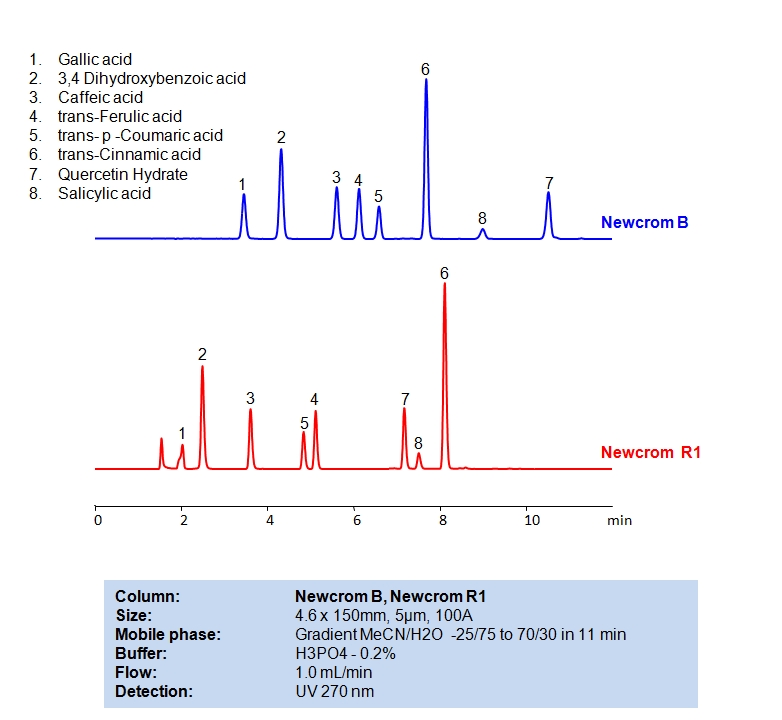
| Column | Newcrom B, 4.6×150 mm, 5 µm, 100A |
| Mobile Phase | Gradient MeCN |
| Buffer | H3PO4 – 0.2% |
| Flow Rate | 1.0 ml/min |
| Detection | 270 nm |
| Column | Newcrom R1, 4.6×150 mm, 5 µm, 100A |
| Mobile Phase | Gradient MeCN |
| Buffer | H3PO4 – 0.2% |
| Flow Rate | 1.0 ml/min |
| Detection | 270 nm |
| Class of Compounds | Acid |
| Analyzing Compounds | Gallic acid, 3,4 Dihydroxybenzoic acid, Caffeic acid, trans-Ferulic acid, trans- p -Coumaric acid, trans-Cinnamic acid, Quercetin Hydrate, Salicylic acid |
Application Column
Newcrom B
The Newcrom columns are a family of reverse-phase-based columns. Newcrom A, AH, B, and BH are all mixed-mode columns with either positive or negative ion-pairing groups attached to either short (25 Å) or long (100 Å) ligand chains. Newcrom R1 is a special reverse-phase column with low silanol activity.
Select optionsNewcrom R1
The Newcrom columns are a family of reverse-phase-based columns. Newcrom A, AH, B, and BH are all mixed-mode columns with either positive or negative ion-pairing groups attached to either short (25 Å) or long (100 Å) ligand chains. Newcrom R1 is a special reverse-phase column with low silanol activity.
Select optionsCaffeic acid
Cinnamic acid
Ferulic acid
Gallic acid
Quercetin
Quercetin dihydrate
Salicylic acid
p-coumaric acid

Separation of Quercetin dihydrate on Newcrom R1 HPLC column
May 16, 2018
Quercetin dihydrate is a flavonol found in many plants. It has a bitter flavor and is a polar auxin transport inhibitor. Quercetin can be analyzed by this reverse phase (RP) HPLC method with simple conditions. The mobile phase contains acetonitrile (MeCN), water, and phosphoric acid. For Mass-Spec (MS) compatible applications the phosphoric acid needs to be replaced with formic acid. Smaller 3 µm particle columns available for fast UPLC applications. This liquid chromatography method is scalable and can be used for isolation of impurities in preparative separation. It also suitable for pharmacokinetics.
Application Column
Newcrom R1
The Newcrom columns are a family of reverse-phase-based columns. Newcrom A, AH, B, and BH are all mixed-mode columns with either positive or negative ion-pairing groups attached to either short (25 Å) or long (100 Å) ligand chains. Newcrom R1 is a special reverse-phase column with low silanol activity.
Select options